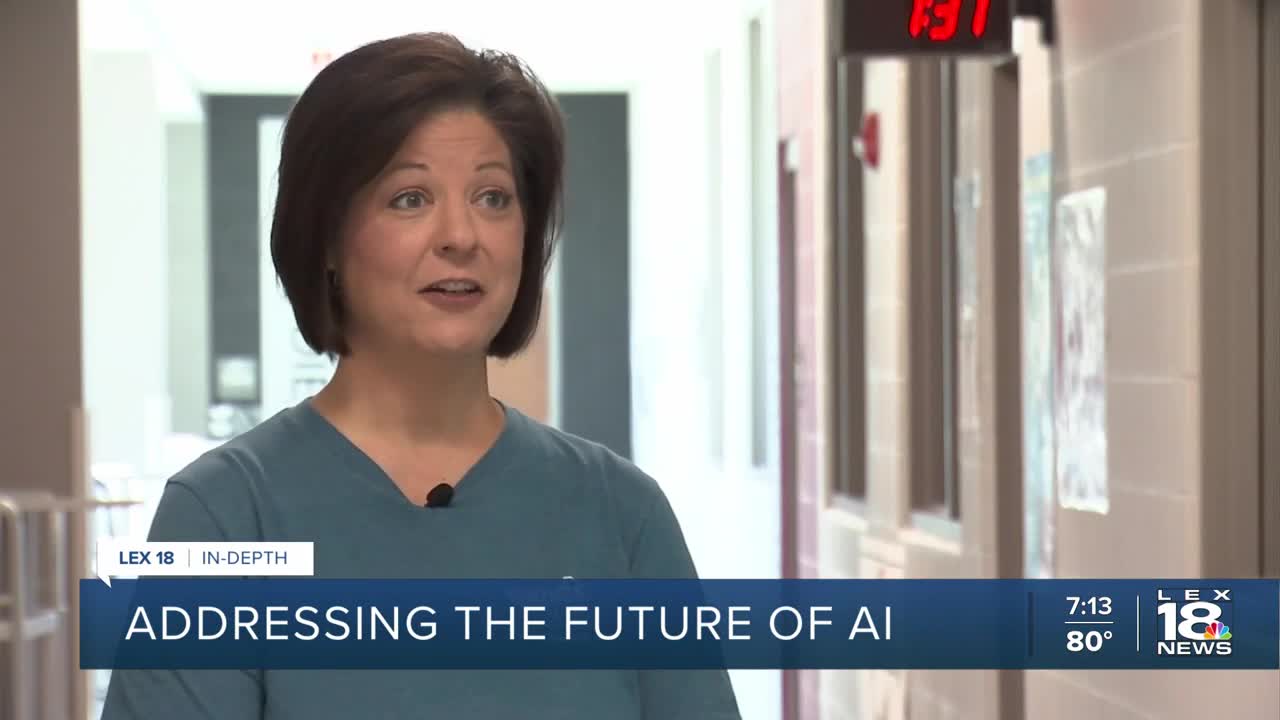(LEX 18) — Artificial intelligence is reshaping how local organizations operate, from classrooms in Irvine to healthcare facilities in Lexington, as professionals navigate both the opportunities and challenges of this rapidly evolving technology.
Lisa Blue, who researches AI's impact on workforce development, delivers six to eight speaking engagements per month discussing AI policy and implementation. She encounters varied student experiences with the technology.
"AI is going to change how we work before it changes who works," Blue said.
Blue works to shift perceptions about AI in education, particularly addressing misconceptions from K-12 settings.
"We do have students coming in from K through 12, who have been told AI is straight up cheating and it's bad don't use it and I'm really trying to change that narrative," Blue said.
At Estill County Area Technology Center in Irvine, students continue integrating AI into their studies. Allyson Banks, who works at the school, describes the technology's dual nature.
"It is fantastic and terrifying at the same time," Banks said.
The school's programs align well with AI applications, according to Banks.
"We have robotics, manufacturing, a lot of different things that pair really well with AI," Banks said.
For computer science teacher Zach Bennett, AI offers significant efficiency gains.
"Using AI, you can create things in half the time that it would normally cost," Bennett said.
Healthcare transformation on the horizon
In Lexington's healthcare sector, CEO, Dr. Stephen Behnke at Lexington Clinic sees AI as a transformative force, though still in early stages.
"I'd say we're in the early innings of this," Behnke said.
Behnke anticipates fundamental changes across the healthcare industry.
"I think that AI is going to fundamentally transform healthcare. I think that the power of the tools today is pretty early," Behnke said.
Looking ahead operationally, Behnke predicts significant changes within the next decade.
"There's almost no way that by 2030 2035 healthcare doesn't look profoundly different," Behnke said.
A market size and forecast report from Grand View Research supports Behnke's projections, showing substantial growth in healthcare AI spending. The report projects that $187 billion will be spent on healthcare AI alone by 2030, representing a significant jump from 2024 market size.
The research highlights AI's expanding role across multiple sectors, from education and manufacturing to healthcare, as organizations adapt to integrate these tools into their operations while addressing concerns about implementation and workforce impact.
As for jobs of the future and how they connect with AI?
Dr. Blue at EKU and Banks at Estill County ATC addressed that question:
"Any kind of job where it's hands-on so we're talking like healthcare, advanced manufacturing, logistics, construction, agriculture, they're all adding AI enhanced jobs right now. So, they're not really being threatened by it, they're being enhanced by AI capabilities," Blue said.
"I don't think it's necessarily gonna replace as many humans as it's going to make us better at our jobs, or at least faster at our jobs," Banks added.
A report in April from Pew Research Center showed that 64% of U.S. adults think AI will lead to fewer jobs in the U.S. in the next 20 years. Five percent believe it will lead to more jobs.





